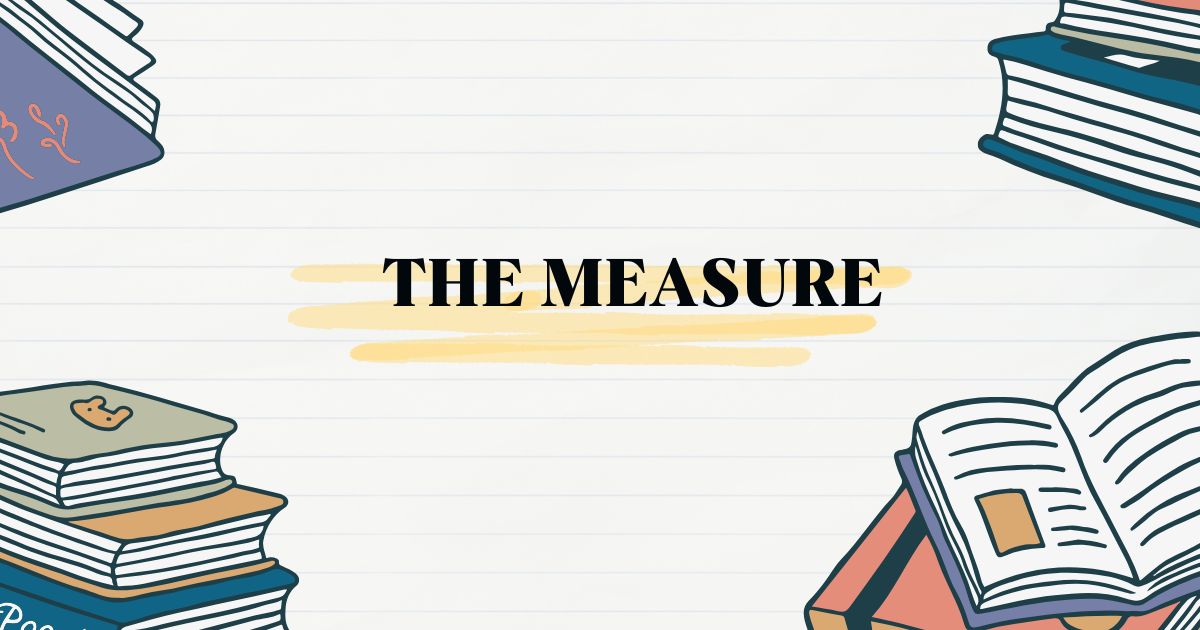Everything in our world revolves around measurement. From the moment we’re born, we’re weighed, timed, and tracked. “The measure” is not just a tool; it’s the way we perceive and structure our reality. Whether it’s time, value, distance, or emotion, we constantly measure to understand.
Why Measurement Shapes Human Experience
Measurement gives us clarity. Imagine navigating your day without knowing what time it is, how much money you have, or how far your destination is. Measurement turns the abstract into the understandable, creating systems for order, progress, and comparison.
The Origin of Measurement in Ancient Civilizations
Humans have always measured things. Ancient Egyptians used cubits to build the pyramids, and Babylonians developed early forms of geometry. Measurement arose out of necessity—to build, farm, and trade—and eventually became the foundation of science, architecture, and economics.
Measurement in Modern Society
Today, we measure everything. Apps track our sleep, steps, and screen time. Schools assess students with grades. Companies evaluate performance with KPIs. Governments use statistics to run economies. Measuring is so ingrained that we often forget we’re doing it.
The Measure of Time: Our Invisible Ruler
Time is perhaps the most influential measure. It’s both constant and fleeting. We celebrate birthdays, dread deadlines, and live by calendars. Time measurement structures our routines and ambitions—it literally dictates how we live our lives.
The Measure of Success in Personal Life
Success is often measured by wealth, career, or achievements. But personal success varies. For some, it’s raising a family; for others, it’s writing a book or traveling the world. What matters is defining success by your own ruler—not society’s.
Measuring Happiness and Fulfillment
Can happiness be measured? Psychologists and researchers try, using surveys, indexes, and data points. But real happiness often resists measurement—it’s a moment, a feeling, a sense of peace. Still, humans try to grasp it through metrics like life satisfaction.
The Measure of Wealth and Economic Progress
Wealth is typically measured in currency and assets. On a larger scale, economies are gauged using GDP, inflation rates, and stock indexes. But these numbers often ignore well-being, fairness, or environmental health. Shouldn’t we measure what truly matters?
The Measure of Intelligence and Education
Schools measure intelligence through tests and grades. IQ tests offer another number. But intelligence is multidimensional—creativity, emotional intelligence, and adaptability don’t always show up on a score sheet. We need broader ways to assess real learning and growth.
Measurement in Relationships and Social Bonds
Even relationships aren’t free from measurement. We count texts, dates, anniversaries. Social media adds likes, comments, and followers to the mix. But the real depth of a connection isn’t numerical—it’s felt, not calculated.
The Impact of Measuring Health and Wellness
From BMI to blood pressure, health is full of measurements. Wearables and health apps track steps, sleep, heart rate, and calories. These can help—but over-measuring can lead to obsession. It’s important to use data wisely, not let it control us.
The Dark Side of Over-Measuring
When everything is measured, we risk losing meaning. Not all things need a number. Over-measuring can cause stress, reduce creativity, and turn people into data points. Sometimes, what truly matters can’t be measured—it must be experienced.
Technology and the Evolution of Measuring Tools
Technology has made measurement precise and accessible. Smartphones count steps, satellites measure climate, and AI tracks behavior. These tools can improve life but also intrude on privacy. The key is using technology to enhance—not dominate—our experience.
The Role of Measurement in Business and Productivity
Businesses thrive on measurement: revenue, ROI, efficiency, conversion rates. Measurement drives strategy and growth. But it also risks reducing people to numbers. A good leader knows when to look at the data—and when to look beyond it.
Conclusion
Measurement is vital—but it shouldn’t rule us. Knowing when and how to measure is a sign of wisdom. Let numbers guide, not govern. Life’s most meaningful moments often defy measurement—like love, wonder, and joy. In the end, “the measure” that matters is how deeply we live, not how much we can count.
FAQs
Why is measurement important in daily life?
Measurement helps organize and simplify our world, guiding decisions in time management, finances, health, and relationships.
Can we measure emotions like love or happiness?
While attempts exist, emotions are deeply personal and often escape precise measurement. They are better felt than calculated.
How has technology changed the way we measure?
Technology has made measurement faster, more accurate, and more integrated into our lives, from fitness tracking to data analytics.
What are the downsides of measuring everything?
Over-measuring can lead to stress, reduce spontaneity, and make life feel mechanical. Not everything that matters can be quantified.
How do I strike a balance with measurement in my life?
Use measurement as a tool, not a rule. Track what serves you, and let go of measuring things that don’t enhance your well-being.











